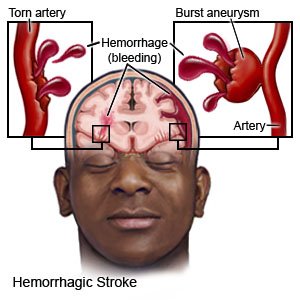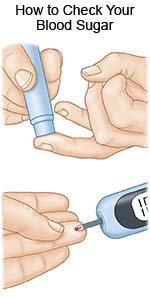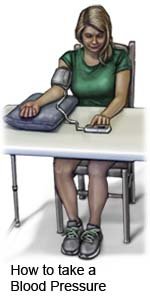Intracerebral Hemorrhage
Medically reviewed by Drugs.com. Last updated on Apr 2, 2024.
An intracerebral hemorrhage (ICH), or hemorrhagic stroke, is bleeding in the brain. An ICH happens when a blood vessel tears or bursts. Blood then leaks out of the vessel and slows or stops blood flow to the brain. The leaked blood may also collect in one area. This is called a hematoma. A hematoma can create pressure that keeps oxygen from flowing to the brain. Brain damage may happen within a few minutes if the brain cannot get enough oxygen. An ICH is a medical emergency that needs immediate care.
 |
DISCHARGE INSTRUCTIONS:
Have someone call your local emergency number (911 in the US) if:
- You have any of the following signs of a stroke:
- Numbness or drooping on one side of your face
- Weakness in an arm or leg
- Confusion or difficulty speaking
- Dizziness, a severe headache, or vision loss

- You have a seizure.
- You have chest pain or shortness of breath.
- You cough up blood.
Seek care immediately if:
- Your arm or leg feels warm, tender, and painful. It may look swollen and red.
- You have unusual or heavy bleeding.
Call your doctor or neurologist if:
- You have trouble swallowing.
- Your blood pressure or blood sugar level is higher or lower than you were told it should be.
- You have questions or concerns about your condition or care.
Medicines:
- Medicines may be given to treat high cholesterol, high blood pressure, or diabetes. You may also need medicine to prevent seizures.
- Take your medicine as directed. Contact your healthcare provider if you think your medicine is not helping or if you have side effects. Tell your provider if you are allergic to any medicine. Keep a list of the medicines, vitamins, and herbs you take. Include the amounts, and when and why you take them. Bring the list or the pill bottles to follow-up visits. Carry your medicine list with you in case of an emergency.
Warning signs of a stroke:
The words BE FAST can help you remember and recognize warning signs of a stroke:
- B = Balance: Sudden loss of balance
- E = Eyes: Loss of vision in one or both eyes
- F = Face: Face droops on one side
- A = Arms: Arm drops when both arms are raised
- S = Speech: Speech is slurred or sounds different
- T = Time: Time to get help immediately
 |
Go to stroke rehabilitation (rehab) if directed:
Rehab is a program run by specialists who will help you recover abilities you may have lost. Specialists include physical, occupational, and speech therapists. Physical therapists help you gain strength or keep your balance. Occupational therapists teach you new ways to do daily activities, such as getting dressed. Your therapy may include movements for everyday activities. An example is being able to raise yourself from a chair. A speech therapist helps you improve your ability to talk and swallow.
Manage or prevent an ICH:
Healthcare providers will help you create goals for your recovery. The following lifestyle changes can help you reach your goals and lower your risk for another ICH:
- Manage health conditions. A condition such as diabetes can increase your risk for a stroke. Control your blood sugar level if you have hyperglycemia or diabetes. Take your prescribed medicines and check your blood sugar level as directed.

- Check your blood pressure as directed. High blood pressure can increase your risk for a stroke. Follow your healthcare provider's directions for controlling your blood pressure.

- Do not use nicotine products or illegal drugs. Nicotine and other chemicals in cigarettes and cigars can cause blood vessel damage. Nicotine and illegal drugs both increase your risk for a stroke. Ask your healthcare provider for information if you currently smoke or use drugs and need help to quit. E- cigarettes or smokeless tobacco still contain nicotine. Talk to your healthcare provider before you use these products.
- Do not drink alcohol. Alcohol increases your risk for a stroke. Alcohol may also raise your blood pressure or thin your blood. Blood thinning can cause an ICH.
- Eat a variety of healthy foods. Healthy foods include whole-grain breads, low-fat dairy products, beans, lean meats, and fish. Eat at least 5 servings of fruits and vegetables each day. Choose foods that are low in fat, cholesterol, salt, and sugar. Eat foods that are high in potassium, such as potatoes and bananas. A nutritionist can help you create healthy meal plans.

- Maintain a healthy weight. Ask your healthcare provider what a healthy weight is for you. Ask him or her to help you create a weight loss plan, if needed. He or she can help you create small goals if you have a lot of weight to lose.
- Exercise as directed. Exercise can lower your blood pressure, cholesterol, weight, and blood sugar levels. Healthcare providers will help you create exercise goals. They can also help you make a plan to reach your goals. For example, you can break exercise into 10 minute periods, 3 times in a day. Find an exercise that you enjoy. This will make it easier for you to reach your exercise goals.

- Manage stress. Stress can raise your blood pressure. Find new ways to relax, such as deep breathing or listening to music.
What you need to know about depression after a stroke:
Talk to your healthcare provider if you have depression that continues or is getting worse. Your provider may be able to help treat your depression. Your provider can also recommend support groups for you to join. A support group is a place to talk with others who have had a stroke. It may also help to talk to friends and family members about how you are feeling. Tell your family and friends to let your healthcare provider know if they see signs of depression:
- Extreme sadness
- Avoiding social interaction with family or friends
- A lack of interest in things you once enjoyed
- Irritability
- Trouble sleeping
- Low energy levels
- A change in eating habits or sudden weight gain or loss
Follow up with your doctor or neurologist as directed:
You may need regular tests of your brain function. Your doctor can also refer you for other kinds of care, such as palliative or comfort care. Write down your questions so you remember to ask them during your visits.
For support and more information:
- American Stroke Association
Phone: 1- 888 - 478-7653
Web Address: http://www.stroke.org
© Copyright Merative 2024 Information is for End User's use only and may not be sold, redistributed or otherwise used for commercial purposes.
The above information is an educational aid only. It is not intended as medical advice for individual conditions or treatments. Talk to your doctor, nurse or pharmacist before following any medical regimen to see if it is safe and effective for you.
Learn more about Intracerebral Hemorrhage
Treatment options
- Medications for Central Nervous System Disorders
- Medications for Head Injury w/ Intracranial Hemorrhage and Loss of Consciousness
- Medications for Hemorrhagic Stroke
- Medications for Syphilitic Ruptured Cerebral Aneurysm
Care guides
- Encephalopathy
- Intracerebral Hemorrhage
- Intracranial Hematoma
- Self Care Measures after a Stroke
- Stroke
- Stroke in Children
Symptoms and treatments
Further information
Always consult your healthcare provider to ensure the information displayed on this page applies to your personal circumstances.
